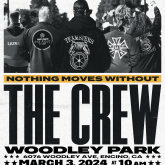Lured in part by California’s $500 million tax incentive program, Bad Teacher decided to shoot in Los Angeles. The Columbia Pictures Industries feature, staring Carmine Diaz, employed up to 40 Teamster drivers, location managers and a casting director for its two-month shoot.
— Faster, also influenced by the tax incentive program has employed more than 20 drivers, five location managers, and two casting directors, in a production without incentives may have been shot out of state.
After a decade-long effort, began by Local 399 and later joined by other organizations in the entertainment industry, the California legislature now provides incentives for shooting in the state. Last year it approved a measure that would allow tax subsidies of $500 million over a five year period to promote filming in California.
To date, the new tax credit program has kept over 70 productions in California which otherwise would have been filmed elsewhere. The program, which earmarked $100 million dollars a year in tax breaks for five years, is expected to generate well over $1 billion for the state. This includes over $400 million in below-the-line wages for Californians involved in the film industry, including Teamster Local 399 members.
Currently, 27 of these new shoots are union productions, each expected to hire anywhere from 100-200 employees.
Local 399 has been working tirelessly for the last decade to make this change happen. As early as 1999, when productions were being lured to Canada, the local pushed Governor Gray Davis and the legislature to pass two tax-incentive bills that would have kept filming local. In the same year, Secretary-Treasurer Leo Reed led 100 movie vehicles – driven by Local 399 members – to Sacramento where they circled the State capital to protest runaway productions which by that time had spread from Canada to become a global problem.
Four years later, Local 399 led a rally in Century City to protest a Canadian filmmaking seminar being held at the St. Regis Hotel. Almost 150 big rigs and production trucks joined 400 demonstrators to hear Reed and other union leaders, as well as State Congressmen, speak on behalf of California’s film production crews.
“We understood, before anyone else in the industry, what was happening,” said Reed. “We knew that incentives were luring productions to Canada, New Mexico, Louisiana and other states. Finally the legislature realizes how big of a problem this is not only for California citizens, but also the state’s economy.”
It hasn’t been an easy fight. Reed, along with other representatives from Local 399 including Business Agents Steve Dyan and Ed Duffy, have met with State Senators, assembly men and women, and the Speaker of the House. They have worked closely with Senator Calderon, who represents the 30th District in Los Angeles, and also sent lobbyists to put pressure on other politicians.
“The studios are driven by profits, not by altruism,” added Reed. “They are going to film wherever they can get the best deal, even if it’s half way across the country. It’s up to us – the men and women who make filming possible – to pressure the state into providing even more incentives. This is a good start, but we are even close to being finished.”

